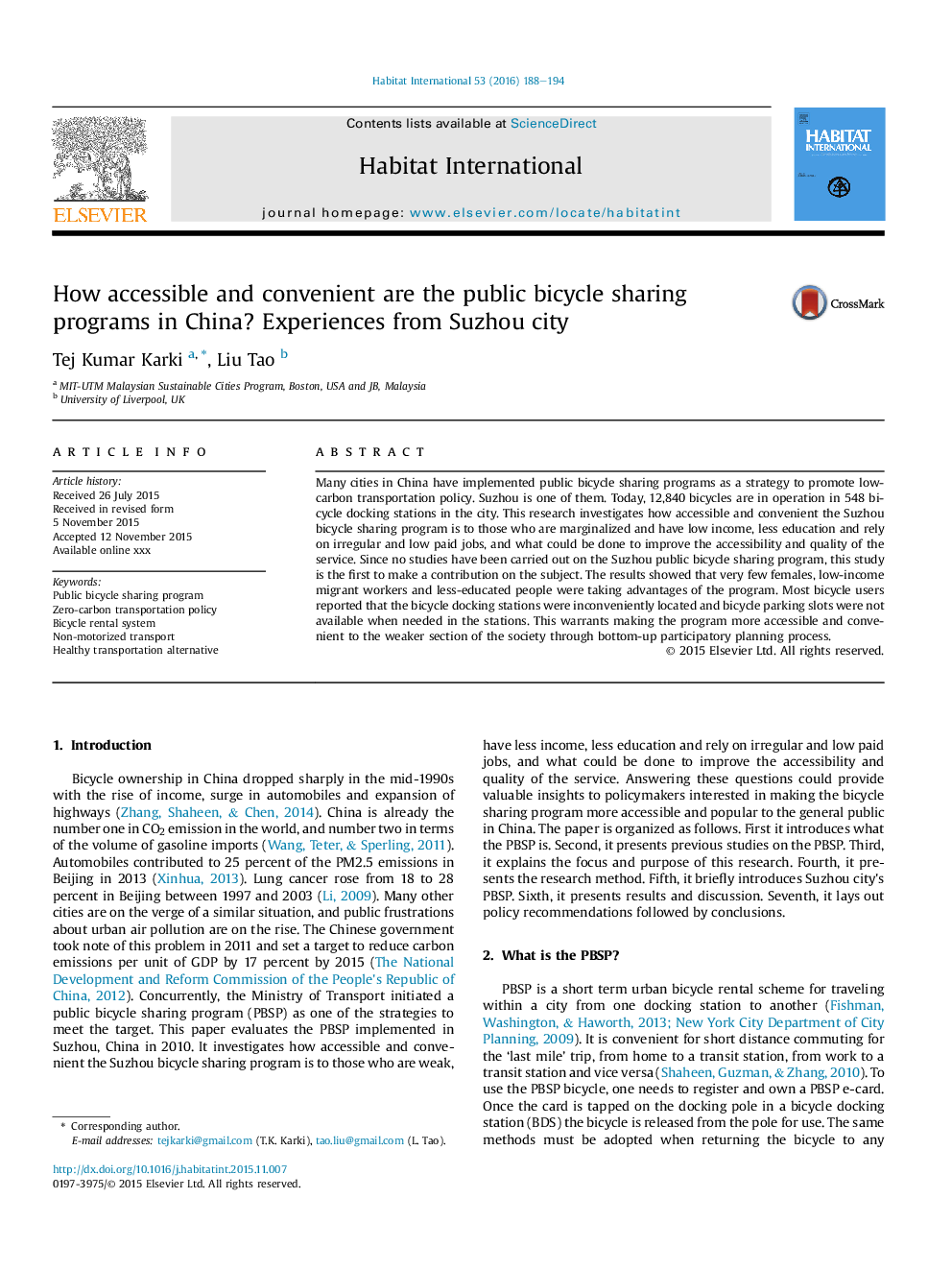| Article ID | Journal | Published Year | Pages | File Type |
|---|---|---|---|---|
| 7455598 | Habitat International | 2016 | 7 Pages |
Abstract
Many cities in China have implemented public bicycle sharing programs as a strategy to promote low-carbon transportation policy. Suzhou is one of them. Today, 12,840 bicycles are in operation in 548 bicycle docking stations in the city. This research investigates how accessible and convenient the Suzhou bicycle sharing program is to those who are marginalized and have low income, less education and rely on irregular and low paid jobs, and what could be done to improve the accessibility and quality of the service. Since no studies have been carried out on the Suzhou public bicycle sharing program, this study is the first to make a contribution on the subject. The results showed that very few females, low-income migrant workers and less-educated people were taking advantages of the program. Most bicycle users reported that the bicycle docking stations were inconveniently located and bicycle parking slots were not available when needed in the stations. This warrants making the program more accessible and convenient to the weaker section of the society through bottom-up participatory planning process.
Keywords
Related Topics
Social Sciences and Humanities
Social Sciences
Development
Authors
Tej Kumar Karki, Liu Tao,
